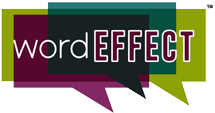FAKE NEWS: A WORKPLACE HOT BUTTON?

FAKE NEWS: A WORKPLACE HOT BUTTON?
The term ‘fake news’ entered the lexicon since the presidential election. And now fake news is being felt in the American workplace.
Though gossip has been around for ages, the concept and term of “fake news” is a fairly new phenomenon.
It’s nothing new in the news media with its colored journalism, and it’s not new in the workplace, either. As with fake news in the media, it is quickly becoming a hot button in the workplace, as well. Fake News, (aka malicious gossip), is typically constructed by taking a piece of true information and slanting it a negative way, sharing a piece of personal information that has no relevance or purpose, or conjuring up downright lies - be it taken from the media or others - then passing it on.
A CONCERNING COMMENTARY
During May-June 2017, Leadership IQ surveyed 3,272 leaders and professionals from the United States and discovered the following:
- Nine out of ten people have heard the term ‘fake news’ and eight out of ten have heard of ‘alternative facts.’
- 59% are concerned about ‘fake news’ in the workplace (with 24% rising to the level of ‘very concerned’).
- 58% believe that it is easier for people today to get away with saying things that are not truthful.
- In the past 6 months, leaders and professionals have seen an increase in these problem behaviors:
- 53% have seen an increase in Criticism
- 53% have seen an increase in Making excuses
- 48% have seen an increase in Dismissing others’ ideas
- 39% have seen an increase in Blaming or name-calling
- 38% have seen an increase in Sarcasm
- 37% have seen an increase in Interrupting others
- 37% have seen an increase in Hyperbole or exaggeration
- 36% have seen an increase in Hostility or disparaging others
- 27% have seen an increase in Lying
These staggering percentages represent a sad and concerning commentary on the decline of character and ethics.
It is understandable then, that 59% of people and businesses surveyed are concerned about the rise of ‘fake news’ and gossip in the workplace (with 24% rising to the level of ‘very concerned’).
64% are concerned about ‘alternative facts’ in the workplace (with 27% rising to the level of ‘very concerned’).
Those in small companies are significantly more likely to believe that nowadays it is easier for people to get away with saying things that are not truthful (62%) compared with medium (57%) or large (55%) companies.
THE ROLE OF SOCIAL MEDIA
Social media has made it easy to spread negative information. With social networking, fake news and gossip has really taken off with people reading or hearing about stories within minutes, and it's amplifying the damage and impact like never before.
SO, WHAT CAN WE DO ABOUT IT?
We can share responsibly. We are all influencers within our own social networks and tribes. Whether it's fake news in the media, within our own workplace, families, or circle of friends, we all have the power to stop fake news and gossip in its tracks.
Follow us on social media and help us keep the conversation going! Together, we can make a difference - one kind word, one less judgment at a time...
Copyright © 2018, WordEffect Communications, LLC
